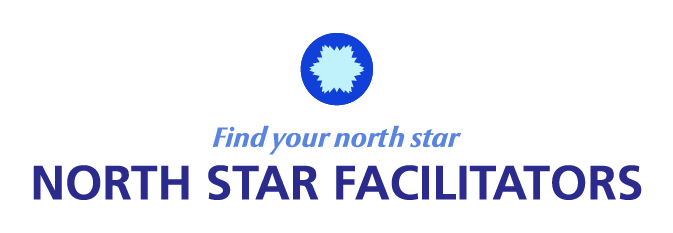Neutralize Whining and Complaining Behaviors in Groups!

Why am I talking about the topic of whining and complaining behavior in groups?
I realize that many people adopt whining or complaining behavior as a normal course of their day. I do this myself sometimes when I am tired and discouraged. You may have someone at work, in your family or circle of friends that does this to you, and it drives you “nuts” (i.e. bothers you a lot!) . I have had several experiences in the past with family and clients and I decided that it was time to reflect on this topic myself again.
In this blog, I will share what I wrote on the topic in 2011, a video, and a really great list of resources if you care to dig deeper. In a nutshell, the wisdom of all these resources seems to be….
1) acknowledge the complaint and behavior directly and quickly.
2) listen carefully with compassion and non-judgment
3) strive to find a jointly acceptable solution quickly, and,
4) not invite or encourage the continuing complaining if the complainers does not even attempt to try the solution.
I would add that if the complaining is about you, I would strive to keep confident in your own values. AND, also look closely at what you are doing that might be contributing to their frustration, or some unmet need. You do not need to give up anything in which you believe. You just need to find common ground where both your needs are met.
Here is a video story of my own that illustrates that!
Here is what I wrote in 2011 about the topic with some minor revisions:
I have really enjoyed a book called The Handbook for Working with Difficult Groups: How They Are Difficult, Why They Are Difficult and What You Can Do About It (J-B International Association of Facilitators), Jossey Bass 2010, Editor Sandy Schuman.
Sometimes when I’m called to design a facilitated event, I’m specifically asked to find a way to “stop people from whining or complaining”. Or, the client asks me, “Can you make sure this doesn’t turn into a griping or whining session?”
In “The Handbook for Working with Difficult Groups”, authors Kauffeld and Meyers* assert that complaining leads to more complaining and can result in strong negativity in the workplace. Complaining might sound like phrases such as, “Nothing will ever change around here”, “I can’t possibly do anything more than I’m doing”, “This is a waste of time”, “No one is listening”, etc. In Chapter 3 of this book, authors Kauffeld and Lehmann-Willenbrock suggest how to counteract complaining cycles. Generally complaining occurs when people feel unsupported, unheard and/or underappreciated. They suggest 3 major ways to deal with complaining.
One is through organizational design. An example of organizational design includes giving more autonomy to work teams and emphasizing work characteristics such as participation, formal team communication, continuous improvement processes, training and team oriented tasks.

Uxmal and Museo de Chocolate in Mexico! – photo from my sister Cynthia MacKay – this photo reminded me of organizational design.
A second way to deal with complaining is to coach teams in methodological statements. This might entail, for example, positively structuring statements. Examples of this might be, “Let’s hear what everybody thinks about this one”; “Let’s move on to the next point in our agenda”‘; “Can you please write that down so we don’t forget your perspective?” I would add my own such as, “Tell us what might be a solution to this”, or “Explain more but this time add a happy ending to it”.

Photo credit above to a colleague at IAFNA Trinidad – Tobago
The third way they suggest is through positive participation. One way to do this is to have the team brainstorm ways they can make a difference in their work rather than waiting for their bosses to make the change. It might also be important to follow-up with the teams to see that they are making a significant difference in creating a positive workplace atmosphere. Remind them that leaders cannot do everything, and ask them to step up where leaders cannot. It helps to have transparent and regular conversations between leaders and staff admitting what a leader can or cannot do and asking for support and help in the areas that he or she cannot fill because of their own blind spots or need to focus on certain other tasks.
All of these ways of dealing with complaining are helpful to those of us who facilitate groups. If we can in some small way change the organizational culture from complaining to confidence, trust and productiveness, we have done a good part of our job.
*Kauffeld, S., & Meyers, R.A. (2009). Complaint and solution-oriented circles: Inter-action patterns in work group discussions. European Journal of Work and Organizational Psychology, 18, 267-294.
Many Great Resources
http://www.uow.edu.au/content/groups/public/@web/@stsv/@swd/documents/doc/uow068340.pdf
(This latter one from Australia deals specifically with University classroom behavior and is quite lengthy)
https://www.americanexpress.com/us/small-business/openforum/articles/dealing-with-employees-who-complain/
I found this one short and accurate.
Quotes specific to this topic:
http://www.quotegarden.com/complaining.html
I really like this one quote: “I personally believe we developed language because of our deep inner need to complain.” ~Jane Wagner
Tools you can use to help you deal with this behavior directly:
https://ejmings.com/insights/top-focus-conversation-using-mindjet/
The link above is a great reference to a ToP (Technology of Participation) focused conversation template from Toronto colleague: Ethan (Jerry) Mings
Good luck! What resources can you share that have been helpful?


